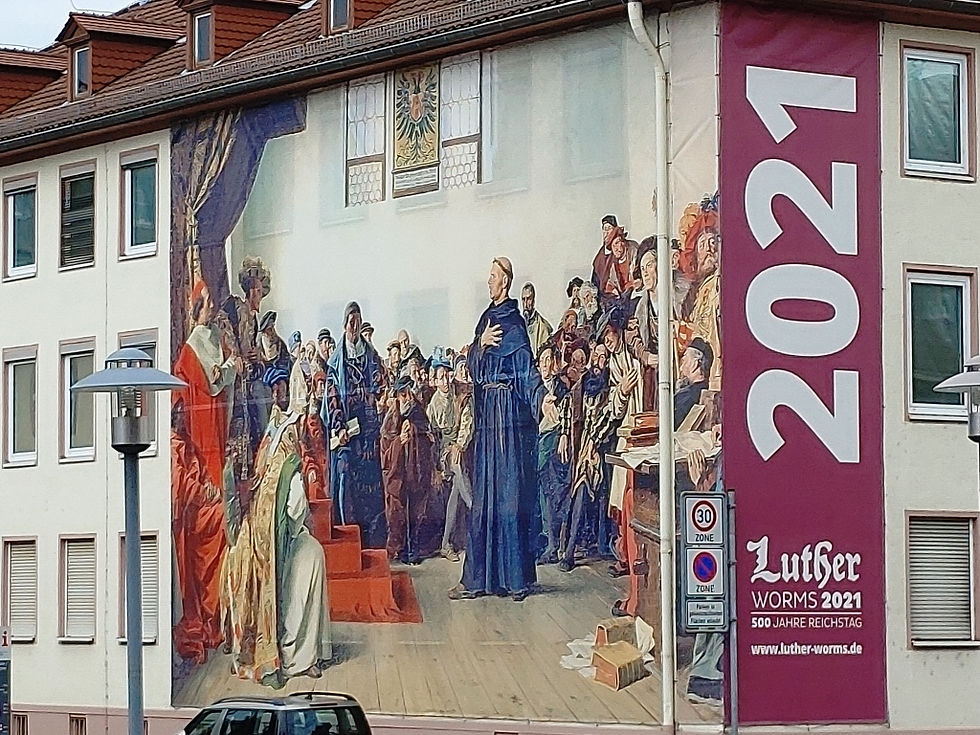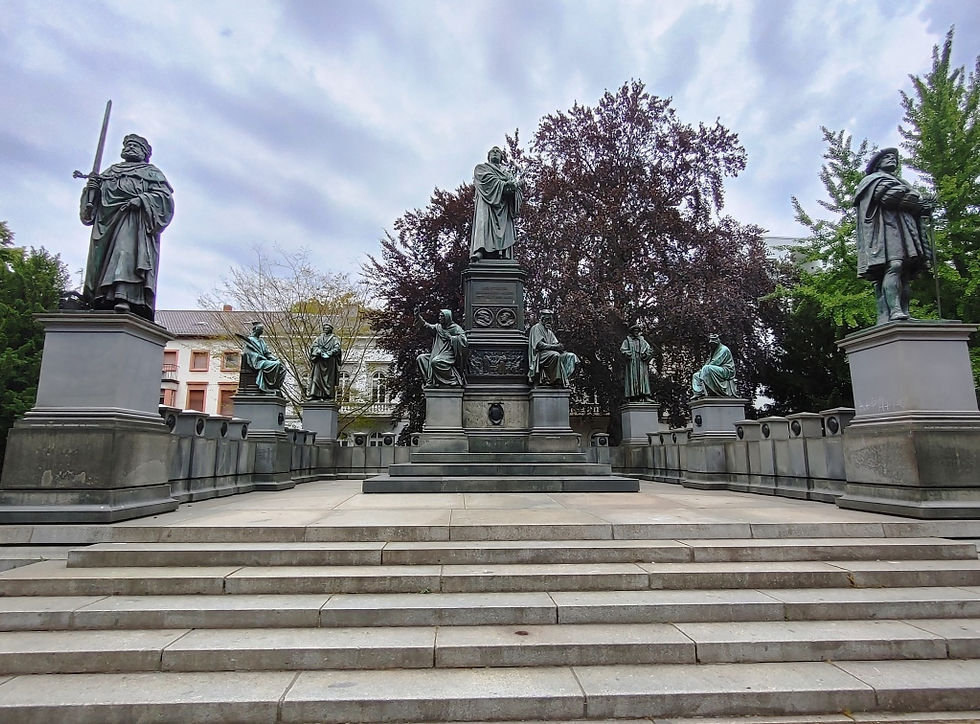Worms and it’s Diet
- pswartz
- Jun 9, 2022
- 3 min read

Today we are headed to Worms, a city southwest of Frankfurt with a population of about 80,000. Worms is one of the oldest cities in northern Europe reaching back to the fifth century but is best known for the 1521 Diet of Worms.

On April 16, 1521, Martin Luther arrived in Worms. Now he just didn’t appear, he was commanded to appear before the Diet at 4 p.m. the following day. It seems that Luther was continuing to upset the powers that be in the church/state and he was commanded to appear to recant all his writings. Dr Jeromee Schurff, Wittenberg professor in Canon Law, was to act as Luther's lawyer before the Diet.

On 17 April, the imperial marshal, Ulrich von Pappenheim, and the herald, Caspar Sturm, came for Luther. Pappenheim reminded Luther that he should speak only in answer to direct questions from the presiding officer, Johann Eck. Eck asked if a collection of books was Luther's and if he was ready to revoke their heresies. Dr Schurff said, "Please have the titles read." There were 25 of them, probably including The 95 Theses, Resolutions Concerning the 95 Theses, On the Papacy at Rome, Address to the Christian Nobility, The Babylonian Captivity of the Church, and On the Freedom of a Christian, you get the idea. There were lots of writings and lots to recant! Luther requested more time for a proper answer, so he was given until the next day at 4 p.m.

On 18 April, Luther, saying that he had prayed for long hours and consulted with friends and mediators, presented himself before the Diet. When the counselor put the same questions to him, Luther first apologized that he lacked the etiquette of the court. Then he answered, "They are all mine, but as for the second question, they are not all of one sort." Luther went on to place the writings into three categories: (1) Works which were well received even by his enemies: those he would not reject. (2) Books which attacked the abuses, lies and desolation of the Christian world and the papacy: those, Luther believed, could not safely be rejected without encouraging abuses to continue. To retract them would be to open the door to further oppression. "If I now recant these, then, I would be doing nothing but strengthening tyranny". (3) Attacks on individuals: he apologized for the harsh tone of these writings but did not reject the substance of what he taught in them; if he could be shown by the Bible that his writings were in error, Luther continued, he would reject them.

Luther concluded by saying:
“Unless I am convinced by the testimony of the Scriptures or by clear reason (for I do not trust either in the pope or in councils alone, since it is well known that they have often erred and contradicted themselves), I am bound by the Scriptures I have quoted, and my conscience is captive to the Word of God. I cannot and will not recant anything, since it is neither safe nor right to go against conscience. May God help me. Amen.”
So, as you can see, Luther created quite the stir and promptly was convicted. But he had been promised safe passage from Wittenberg and back, so he was safe for the moment, but with the conviction, after he got back to Wittenberg, anyone could kill him at any time. So, he was spirited out of Worms in the middle of the night and while traveling back to Wittenberg, was kidnapped and taken to Wartburg Castle and hidden there for the next nine months. (See my blog a few days ago on Wartburg Castle) (Note: click on pictures to enlarge).
















Comments